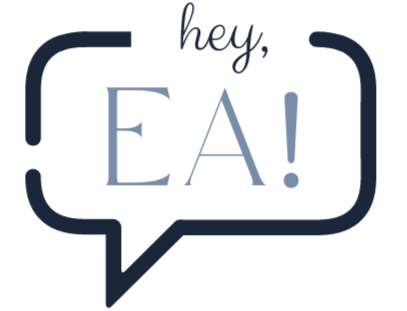Sep 24
/
Sarah Calderon
Top Executive Assistant Interview Questions to Land a Great Candidate

Behind every successful executive is a highly skilled assistant who keeps the wheels turning. Whether managing schedules, handling communications, or coordinating projects, the role of executive assistant is vital to keeping things on track and freeing up valuable time. In fact, executive assistants save their senior executives up to 8 hours a week on average, which adds up to about 46 days a year! And with the right executive assistant training and support, those savings can be even greater.
So how do you ensure you hire the right person? It all starts with asking the right executive assistant interview questions. In this guide, we’ll walk you through the essential questions you need to ask to land a top-tier executive assistant.
How to Prepare the Best Executive Assistant Interview Questions
To hire the right executive assistant, preparing targeted executive assistant interview questions is key. Here are essential steps to guide your preparation:
1. Focus on the Role’s Key Responsibilities
Tailor your questions to the specific demands of the role. Whether the EA will be managing high-level communications, overseeing scheduling, or handling strategic tasks, make sure your questions align with these core responsibilities.
2. Decide on Interview Structure
Determine how many interview rounds you’ll hold and who should be involved. Many companies conduct an initial screening with HR, followed by a second interview with the executive(s) they’ll support. Including multiple stakeholders helps you assess the candidate from different perspectives.
3. Prioritize Behavioral and Situational Questions
Behavioral and situational questions provide insight into how a candidate handles real-world challenges. These questions reveal problem-solving abilities and adaptability, which are critical in an EA.
4. Assess Communication and Organizational Skills
Executive assistants are responsible for keeping communications and tasks organized. Ask questions that uncover how they prioritize and manage high-stakes tasks.
5. Test for Technical Proficiency
Today’s EAs must be comfortable with digital tools like scheduling software and CRM systems. Include questions to gauge their experience with relevant tech.
Top Interview Questions for the Executive Assistant Role
When interviewing candidates for an executive assistant (EA) position, it’s crucial to ask questions that assess both their practical skills and how well they’ll fit into the role. Below are key categories of interview questions that will help you identify the best candidate.
General Interview Questions for an Executive Assistant
Start with these general questions to get an overview of the candidate’s background and motivation for applying. These will help you gauge their experience supporting executives and understand why they’re drawn to the role.
- "Can you tell me about your experience supporting senior executives?" This gives insight into the candidate’s understanding of executive-level support and whether their background aligns with the needs of your company.
- "What attracted you to the role of executive assistant?" Here, you’re evaluating their motivation for applying. Are they passionate about supporting leadership, or do they see the role as a stepping stone? Look for candidates who genuinely understand and appreciate the impact a great EA can have.
Behavioral Interview Questions
Behavioral questions ask candidates to reflect on past experiences. These are particularly helpful for assessing how candidates handle real-world challenges and responsibilities in a similar role.
- "Tell me about a time you had to manage multiple priorities. How did you ensure everything was completed on time?" This question will help you assess the candidate’s ability to manage competing tasks effectively, especially under pressure—a vital skill for any EA.
- "Describe a situation where you had to maintain confidentiality. How did you handle it?" Confidentiality is crucial for executive assistants, who often handle sensitive information. You want to ensure the candidate understands the importance of discretion and trustworthiness in this role.
Situational Questions for Executive Assistant Interview
Situational questions are hypothetical and test how a candidate would handle specific challenges. These questions provide insight into their problem-solving abilities and how they think on their feet.
- "What would you do if your executive’s calendar was fully booked, but an urgent meeting request came in?" This question evaluates their ability to manage scheduling conflicts and navigate high-pressure situations.
- "How would you handle a situation where multiple departments needed your executive’s attention at the same time?" Here, you’re testing their prioritization skills and ability to communicate across departments, a common challenge for EAs.
Questions to Assess Technical Skills
Today’s executive assistants must be proficient with digital tools like scheduling software, CRM systems, and project management platforms. These questions will help you assess their comfort with the technology your organization uses.
- "What project management or scheduling tools have you used? How comfortable are you with tools like Asana, Google Workspace, or Microsoft Office?" Ask this to evaluate their technical proficiency and experience with key tools. Ensure they are familiar with the software you rely on daily.
- "How have you used technology to streamline workflows for your executive?" This question provides insight into how they leverage technology to improve efficiency, which is particularly important if your executive’s workflow is complex.
Questions to Assess Communication and Organization
Strong organizational skills and effective communication are at the heart of an EA’s role. Use these questions to dig into how candidates prioritize and manage tasks, as well as how they communicate on behalf of an executive.
- "How do you prioritize tasks when everything feels urgent?" Executive assistants are often faced with multiple high-priority tasks. This question helps you understand how they stay organized and ensure nothing falls through the cracks.
- "Tell me about a time when you had to handle communications for multiple executives. How did you manage competing priorities?" This question assesses their ability to manage complex communications and handle multiple demands effectively, particularly when supporting more than one executive.
Questions to Assess Executive Assistant Strengths and Weaknesses
Finally, it’s important to gauge the candidate’s self-awareness and how they approach professional growth. These questions can help you evaluate their strengths in the role and how they work on their weaknesses.
- "What are your greatest strengths as an executive assistant?" This allows the candidate to highlight their strongest skills, whether it's communication, organization, or problem-solving.
- "What’s an area you’re working to improve in your role as an executive assistant?" Everyone has areas for growth, and this question helps assess whether the candidate has a growth mindset and the ability to recognize where they need improvement.
Executive Assistant Assessment Task Ideas
Beyond interview questions, giving candidates real-time tasks, tests, or assessments is a practical way to assess their abilities. In fact, over 65% of employers use some form of pre-employment testing to evaluate cognitive abilities, skills, and personality traits. These simulate key aspects of the executive assistant role, helping you gauge their skills under realistic conditions.
1. Calendar Management Task
Evaluating how well a candidate can prioritize a busy executive’s schedule is essential. Provide a day’s worth of meetings and last-minute requests, asking them to arrange the schedule efficiently while minimizing conflicts.
2. Written Communication Task
Strong communication is vital for an EA. Give the candidate a scenario where they must draft a professional email—such as rescheduling a meeting or responding to a client query. Assess their tone, clarity, and professionalism.
3. Software Proficiency Test
Test their familiarity with tools like Asana, Google Workspace, or Slack by asking them to complete a simple task, such as organizing a project or managing communication between team members. This will give you insight into their technical competence.
These tasks offer valuable insights into how a candidate performs essential EA duties in real-world scenarios.
What to Look for in an Executive Assistant
When hiring an executive assistant, you want to dig deeper than just standard interview questions. It's essential to focus on the traits that truly make a difference in this role. Here are three key qualities we prioritize here at Hey, EA!:
Natural Curiosity: The best executive assistants are naturally curious. They want to understand the ins and outs of your business and are relentless in finding solutions to problems. Pay attention to candidates who ask thoughtful, proactive questions during the interview. These individuals are eager to dive into your business needs, and their curiosity will translate into a more efficient and effective partnership.
A Service-First Mindset: A great EA doesn’t just take care of tasks; they’re laser-focused on making life easier for their executive and the entire team. Look for candidates who embody a strong customer service mentality—those who anticipate needs and take action before being asked. Their goal should always be to support leadership in a way that elevates the whole organization.
Teamwork: An EA often acts as the glue that holds everything together. They’re not only keeping their executive on track but also ensuring the entire team stays aligned. Sometimes, they’re the critical link between an executive and the reality of day-to-day operations. In short, the best EAs know how to work seamlessly with others and keep everything running smoothly.
Beyond these top traits, you’ll also want to consider:
- Strong communication skills: Can they clearly explain complex ideas and relay information effectively?
- Organizational mastery: Are they able to juggle multiple responsibilities without dropping the ball?
- Technological proficiency: Do they know the tools that keep your business running—like scheduling software and CRM systems?
Red Flags to Watch for During an Executive Assistant Interview
Not every candidate will be the right fit. Here are a couple of red flags we always keep an eye out for during interviews:
- Status Quo Mentality: If a candidate seems too comfortable with the status quo and doesn’t show a desire to challenge themselves or improve processes, that’s a warning sign. You want someone who’s always looking for ways to optimize and enhance your productivity—not someone who’s just along for the ride.
- Attitude Under Pressure: The ability to stay calm in the midst of chaos is a must for an executive assistant. If a candidate becomes easily flustered during the interview, they may struggle in high-pressure situations. Look for someone who can maintain a positive tone and handle stress without losing their cool.
Other signs to watch for:
- Inability to prioritize: If they can’t explain how they manage multiple tasks, they may not be well-organized enough for the role.
- Lack of discretion: Sharing too many details about previous roles can indicate a poor understanding of confidentiality—something critical for an EA.
Hire the Perfect Executive Assistant with Hey, EA!
Hiring the right executive assistant can greatly enhance your team’s efficiency and productivity. By asking targeted questions, assessing key skills, and screening for important traits like organization, discretion, and adaptability, you can confidently select the best candidate for the role.
For additional support, Hey, EA! offers tailored hiring solutions and training programs to ensure your executive team operates at its highest potential. Explore how Hey, EA! can help you find the right EA and set them up for success here.
Subscribe to our newsletter
Thank you!
